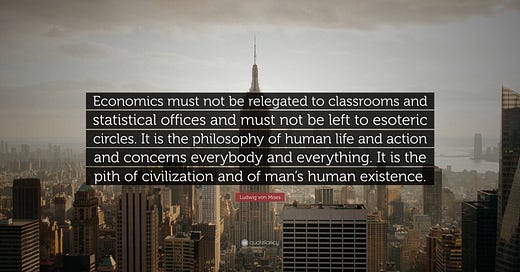While professional economists and political lackeys present Economics as something complicated for the elites to worry about while the rest of us should just self-medicate and watch TV, trusting our lords and masters to take care of us, basic Economics is not complicated. It is the science of human action. It is a social science grounded in the reality of how human beings act as human beings.
And so learning the basics is a way to “debamboozle” yourself (a great word coined by the economist Murray Rothbard) from what our insect overlords are trying to do to us by pulling the wool over your eyes.
Here are a couple of helpful videos to explain the basics:
First, this is a six and a half minute video of the 1958 short essay, “I, Pencil” by Leonard Read, which explains what a free market is (contrary to the commie propaganda were are bombarded with over the Orwellian telescreens and in the Oceania media outlets):
Next, this three-minute video is a recap of a sort-of parable published in 1850 by Frédéric Bastiat entitled “The Broken Window Fallacy.” This exposes the tricks of the politicians, who try to tell us printing money, handing out stimulus, or even claiming that wars and natural disasters “help the economy” for the logical fallacy that they are:
If you enjoy these videos and would like to learn more basic Economics, check out this free Economics for Beginners series of videos (30 minutes total) at the Ludwig von Mises Institute.
This next one is a little more meaty (42 minutes). It is an older piece by the Mises Institute. It is a documentary that chronicles the history of the US Federal Reserve from its birth in 1913 and its purpose to enrich the few at the expense of the many by means of Big Banks and Big Government (and is just another application of the Broken Window Fallacy). This is the real explanation of why there is inflation:
Watching these videos will make you more literate in Economics than the vast majority of Americans - including most politicians.
For much more free material on economics - including an entire library of books that you can download free, visit the Mises Institute online or in person!




